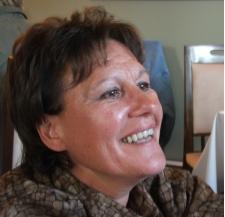While the Conservative government in Alberta moves to limit discussion of sexual orientation in its school system, another provincial Conservative government is opening its classroom doors to queers.
Newfoundland and Labrador is the only province to allow Egale, Canada’s queer rights lobby group, to distribute its safe schools survey to every one of its school divisions. And earlier this month, Egale’s representative in St John’s led a series of workshops on queer issues “from Plum Point to Codroy Valley,” speaking to over 1,200 students.
“I’m ecstatic,” says Susan Rose, the activist who successfully lobbied her province’s Conservative government and led the workshops. “Change is finally going to happen.”
For Rose, it’s a long time coming. A teacher in the province for 21 years, she left her post in 2006 when she got frustrated by homophobia in the school system.
Students called Rose “dyke” and “lizzie,” and parents constantly pulled their kids out of her class. Rose’s colleagues weren’t any help, either. “Friends felt upset that I was causing so much discussion around the staff room table,” she says. Over and over again, other teachers told her: “I don’t care that you’re a lesbian but do you have to talk to kids about your sexual relations?”
Soon after Rose accepted an early retirement package, Egale asked her to join its board. “I saw a way back into the education system,” she says.
Slowly, she started collecting letters from queer students, educators and parents, detailing homophobia in schools. One girl, a straight-A student, had to be transferred to a different school after she came out and faced threats from her peers. Even the principal criticized the girl for speaking up about her sexual orientation.
“This is a human rights issue,” says Rose. “Kids are entitled to a safe learning environment.”
That’s the message Rose gave to the province’s former Minister of Education, Joan Burke, when she passed the letters on to Burke a few months ago. Rose requested that every division in the province be required to distribute Egale’s survey on homophobia and transphobia.
According to Rose, Burke’s response was immediate. The minister said: “This needs to happen. We need to address this issue.” (Burke has since switched jobs in a cabinet shuffle.)
Within weeks, the survey was passed out to schools across the province. And shortly after that, Rose got an offer she couldn’t refuse. Newfoundland and Labrador’s Planned Parenthood asked her to travel from one end of the province to another, talking to junior high and high school students about homophobia.
“It caused a great stir in the province,” Rose says proudly of her workshop, Making Queerness Visible.
At the biggest high school in Corner Brook, Rose says one girl sat in the front row and hung on Rose’s every word. After the workshop, the student approached Rose with tears in her eyes and said, “This is the first positive thing I’ve ever heard about gay and lesbian people.”
Rose didn’t just make an impression on students. She also helped change the attitudes of guidance counsellors.
When Rose arrived at one school, the guidance counsellor welcomed her by saying, “We don’t have LGBT people in our school.” But when he admitted that words like “fag” and “dyke” are rampant in the hallways, Rose told him, “Do you think maybe gay students are here but they’re invisible?”
Another guidance counsellor was afraid Rose was recruiting. “I’m not comfortable with what’s going on,” he said. “I don’t mean to be rude but I don’t want to be dealing with a hundred kids coming out tonight.”
“If you were an LGBT student in that school,” Rose asks rhetorically, “would you approach the guidance counsellor?”
In fact, that’s exactly what she hopes to do next, with a series of proposed workshops aimed at teaching guidance counsellors about lesbian, gay, bisexual and trans issues.
Rose believes very strongly that the next battleground for the queer community is the classroom. “The whole education system is being forgotten,” she says. “We adults enjoy equal rights, we’re out in our workplaces and our places of worship. We don’t need to worry about walking down the corridor and getting attacked. And yet our own LGBT youth are living those lives, sometimes on a daily basis.”

 Why you can trust Xtra
Why you can trust Xtra


